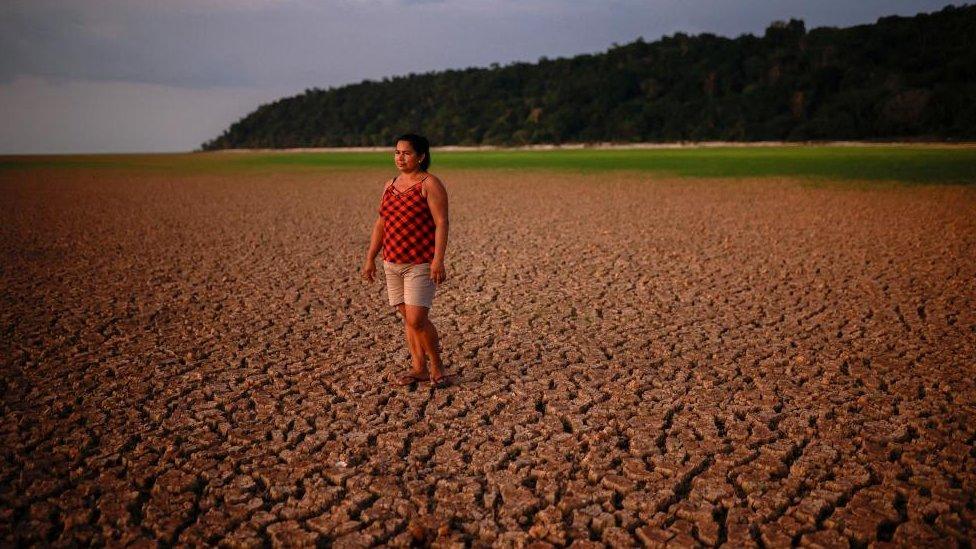Amphibian that buries head in sand named after Donald Trump
- Published
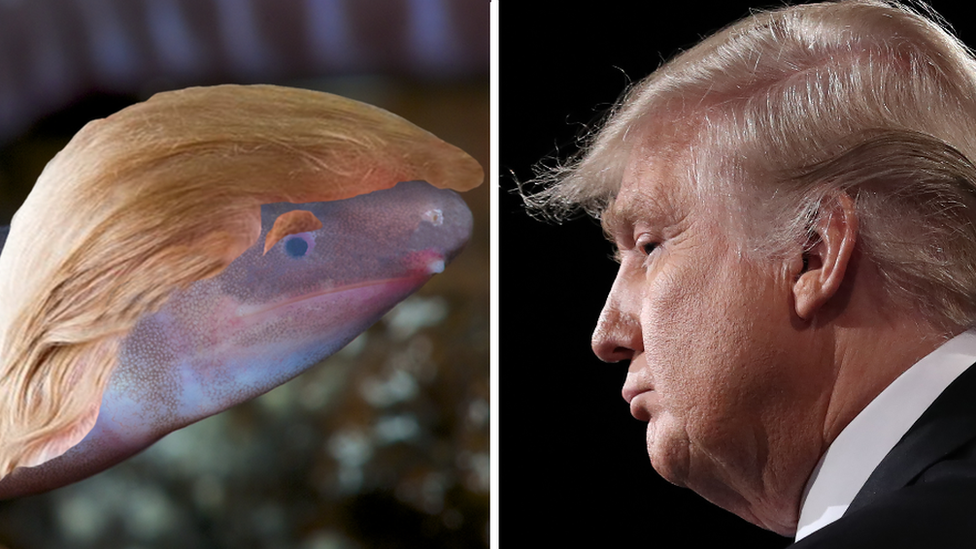
EnviroBuild, the company which successfully bid to name the creature, added the president's distinctive hair to an image of it
US presidents tend to receive their fair share of honours, but Donald Trump may want to ignore his latest one.
A newly discovered amphibian that buries its head in the sand has been named after him, apparently in response to his comments about climate change.
The Dermophis donaldtrumpi, which was discovered in Panama, was named by the head of a company that had bid $25,000 (£19,800) at auction for the privilege.
The company said it wanted to raise awareness about climate change.
"[Dermophis donaldtrumpi] is particularly susceptible to the impacts of climate change and is therefore in danger of becoming extinct as a direct result of its namesake's climate policies," said EnviroBuild co-founder Aidan Bell in a statement.
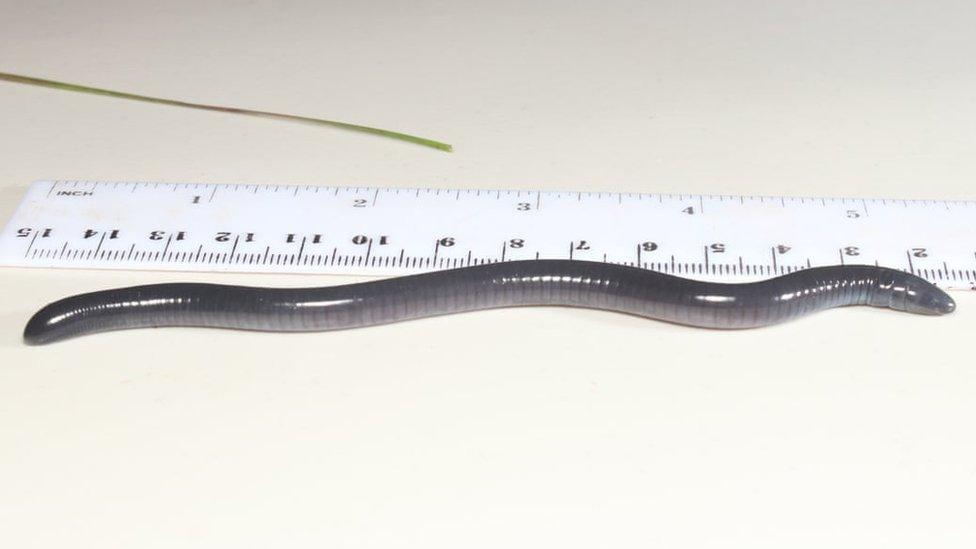
The money raised from auctioning the naming rights went to the Rainforest Trust charity
The small, blind, creature is a type of caecilian that primarily lives underground, and Mr Bell drew an unflattering comparison between its behaviour and Mr Trump's.
"Burrowing [his] head underground helps Donald Trump when avoiding scientific consensus on anthropomorphic climate change," he wrote.
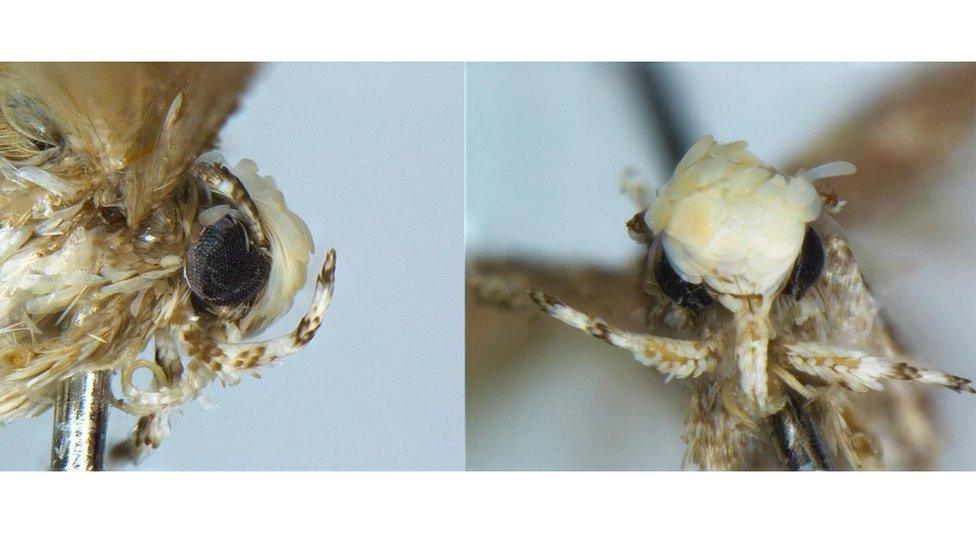
Neopalpa donaldtrumpi was named after the president last year
The amphibian is not the first beast to be named after Donald Trump.
Last year, Neopalpa donaldtrumpi, was discovered by biologist Vazrick Nazari in a collection of moths from the Museum of Entomology, at the University of California. The scientist said the moth's unique head colouring reminded him of the president.

Other presidential animals
Barack Obama boasts the title of being the most commemorated of all US presidents in scientific names, with 14 different species named after him.
These include a trapdoor spider from California (Aptostichus barackobamai) and a small coral fish from his native state of Hawaii (Tosanoides obama). The fish has a small dot on the dorsal fin which reminded researchers of Mr Obama's presidential campaign logo.
George W Bush and his vice-president Dick Cheney have also been honoured as slime mould beetles (Agathidium bushi and Agathidium cheneyi respectively). Researchers Kelly Miller and Quentin Wheeler were quick to express, though, that the animals they were named after had nothing to do with their views of the pair.

The world's leading scientists agree that climate change is primarily human-induced.
But Mr Trump, whose administration has pursued a pro-fossil fuels agenda, has accused those scientists of having a "political agenda" and cast doubt on whether humans were responsible for the Earth's rising temperatures.
"I don't know that it's manmade," he said in an interview with CBS's 60 Minutes in October. "I'm not denying climate change but [temperatures] could very well go back," he added, without offering evidence.
Last month, Mr Trump questioned a report by his own government that found climate change would cost the US hundreds of billions of dollars annually and damage health.
"I don't believe it," he told reporters at the time.
After taking office he announced that the US would withdraw from the Paris climate change agreement, which commits countries to keeping a limit on rising global temperatures.
He justified this decision by asserting that he had been elected to serve the citizens of Pittsburgh and not Paris and the deal disadvantaged US businesses and workers.
- Published3 December 2018

- Published26 November 2018
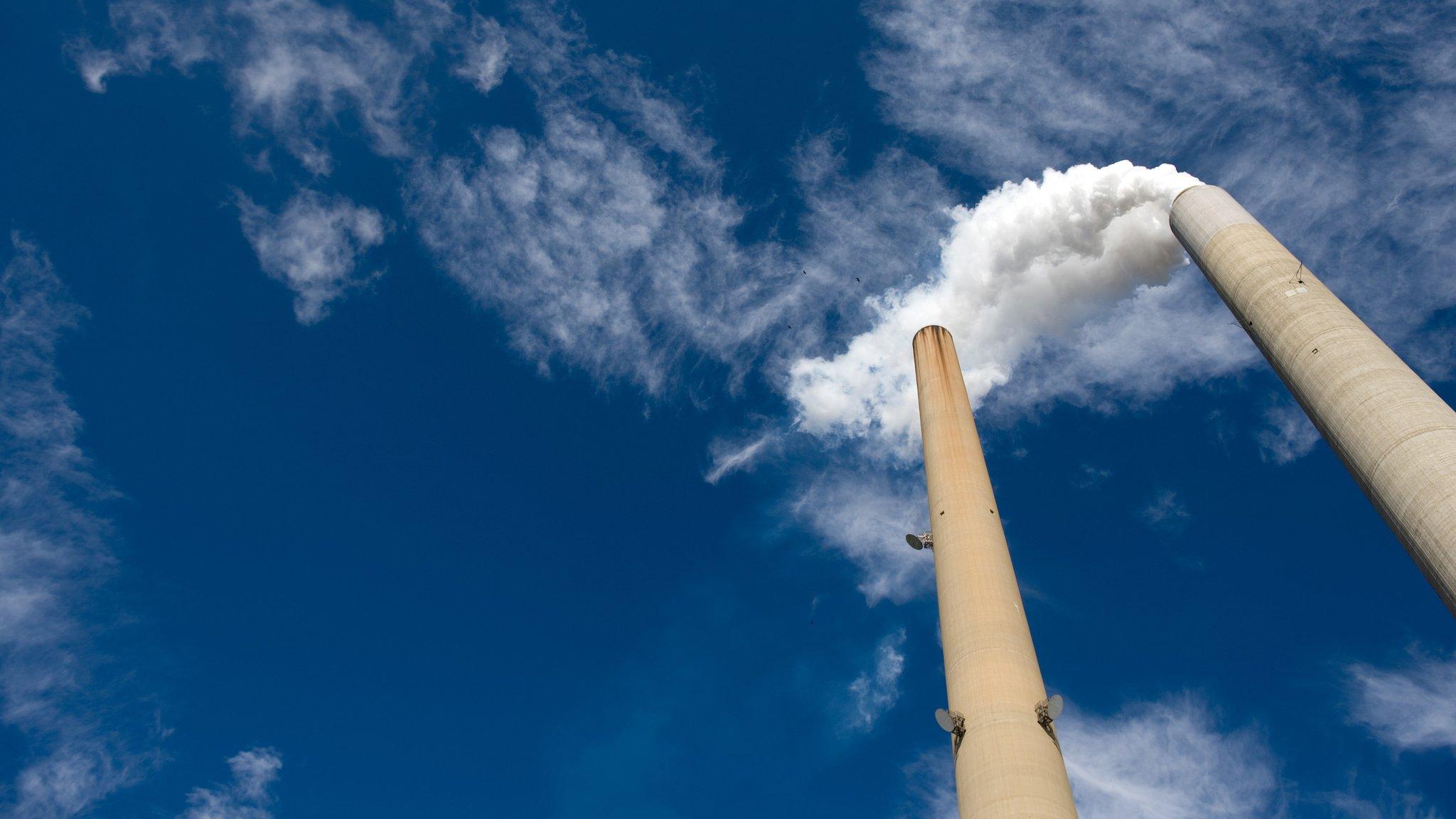
- Published15 October 2018

